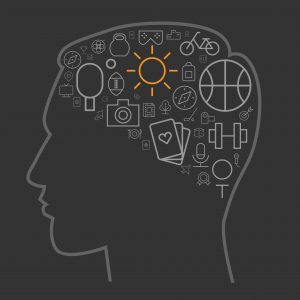Intelligence is All in Your Head
 It seems a logical theory; after all, if we train our bodies, they get stronger. Therefore it would stand to reason that training our minds would also make them stronger and more fit. Brain training games are a popular trend that people have adopted in recent decades to combat the aging of the brain, to stay sharp and to increase cognitive function – and certainly everyone is interested in any science that backs that up. Websites and mobile apps such as Luminosity have made an industry of it – but do these games and exercises work?
It seems a logical theory; after all, if we train our bodies, they get stronger. Therefore it would stand to reason that training our minds would also make them stronger and more fit. Brain training games are a popular trend that people have adopted in recent decades to combat the aging of the brain, to stay sharp and to increase cognitive function – and certainly everyone is interested in any science that backs that up. Websites and mobile apps such as Luminosity have made an industry of it – but do these games and exercises work?
Latest studies, most recently one from Proceedings of the National Academy of Sciences, found that people who do just one hour of brain training experience an increase in their IQ of five to 10 points– amazing, but there is a catch. The increase in IQ only occurred if the person playing the games believed it would. Could it be that the benefits of sharpening our minds is in fact, all in our heads?
The placebo effect is not a new concept, but it is a remarkable phenomenon. Multiple tests have indicated that an inactive substance like sugar water, when administered in a blind situation, can actually improve a patient’s health simply because they believe it will. Is the placebo effect in play when people engage in brain games?
In a recent study out of George Mason University, researchers placed two announcements around the campus. One poster invited students to join a study to train their brains, while the other asked students to take part in an exercise that would earn them credit. This resulted in two sets of students groups, each with a different belief in why they were there – with only one group believing they were there to increase their IQ. Once in the lab, both groups actually performed the exact same brain training task. As as expected, students who believed the training would increase their cognition outperformed the “get credit” group by 5 to 10 points on a subsequent IQ test. Since the task in the experiment was too brief to provide any true cognitive benefit, the results indicate that they truly may have performed better because they believed they would. Scientists plan on continuing the research.
Earlier studies have proposed that other methods – some even as old as recorded history – may work just as well as the web-based training. The Journal of Alzheimer’s Disease recently suggested that a combination of yoga and meditation had equal positive effects for cognition as brain training programs, and it actually far outperformed these games in regards visuospatial memory. These results were recorded via MRI, and were also noted to improve patient’s moods, coping skills and stress levels. We would like to be clear, the new study does not conclude that the training games do not have benefit–it just presents the fact that there are other variables involved. If a person enjoys the games and believes they are working, they most likely are. But there are many other ways to keep cognitively healthy by staying mentally active, learning new skills, meeting new people and experiencing new things.
Science is still a long way off from truly understanding the right combination of brain “therapies” and how we can best boost our intelligence. “If you do find a way to actually increase intelligence, it’s a fantastic finding,” study author Cyrus Foroughi told Cosmos.com. “I just don’t think the science is quite there yet.”
